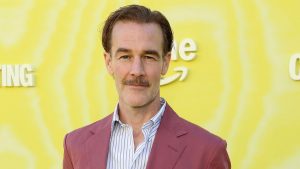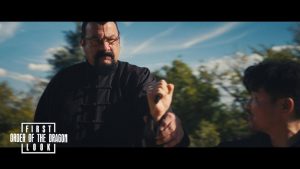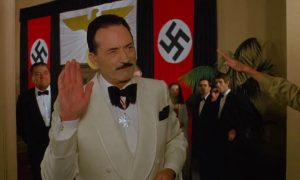
“She weren’t a prostitute this time – she were innocent.”
This line – spoken by David Morrissey as DCS George Oldfield in The Long Shadow’s third episode, when 16 year old Jayne MacDonald is found dead – pretty much says it all. Because by this point in ITV’s Yorkshire Ripper drama, we know two other women, Wilma McCann and Emily Jackson, have also been killed, but after the police labelled them as sex workers their deaths have been treated very differently to Jayne MacDonald.
We’ve seen detectives like Oldfield refer to sex workers as “whores”, “slags”, “hookers”, “prozzies” and “tarts”, but it’s still a gut punch to viewers to hear it said so plainly: to the police – even senior detectives – sex workers who get murdered aren’t “innocent”, but somehow deserving of the violence inflicted on them.
In the eyes of the police, this included his second victim, Emily Jackson, a 42-year-old mother of three from Churwell in Leeds, who had started to earn money as a sex worker just weeks before Peter Sutcliffe murdered her in January 1976.
A driving force behind ITV’s seven-part drama The Long Shadow has been to rectify this grossly unfair minimising of the deaths of Jackson and many of the other women attacked by Peter Sutcliffe – telling their real stories instead, in particular Jackson’s – and this is especially clear in which details they chose to include, and which ones they purposefully left out.
Despite the infamy of this case, we never see any of Sutcliffe’s violent crimes play out on screen, nor do we see the bodies of any of the thirteen women he killed, (including Jackson), and many of the widely-documented details of the horrific injuries and mutilations Sutcliffe inflicted aren’t referenced.
Instead, The Long Shadow casts a recognisable face – Katherine Kelly (Black Ops) – as Emily Jackson, and the first episode is largely about her life. We see how she drives her husband Sidney (Daniel Mays, Des) to and from jobs for his struggling roofing business because he can’t drive. We see that she’s worried about paying the bills and keeping her three children fed and happy.
We see her struggle to push her worries to the back of her mind on a night out for their friend’s birthday and her concern about what the neighbours will think if they discover their money problems. We see how it’s eventually her wish to give her children a nice Christmas that pushes her to start earning money through sex work, allowing her to give them modest presents like a new jumper and a doll. And how, discovering her daughter has been asked to be a bridesmaid for a family wedding, she decides to continue her sex work to pay for her daughter’s dress.
The problem is, this part isn’t actually true. ITV seems so admirably intent on showing just how innocent Emily Jackson was, it shows her reluctant foray into sex work as a noble choice she makes for her family, but the reality is – like many sex workers at the time – she didn’t really have a choice at all.
Emily Jackson’s son Neil has clarified in recent interviews: “It wasn’t her idea to go on the game – it was dad who forced her… But in the show it’s the other way round. I want to make sure the record is correct.” He also feels that when it came to The Long Shadow’s portrayal of his father, “they’ve painted him a little bit too nice… it makes my dad look far more innocent than he was”, confirming he had also been physically abusive towards Emily during their marriage.
Despite this error, Neil has backed The Long Shadow, praising the way it gives victims a voice, and sent a message to Daniel Mays and Katherine Kelly giving his blessing and saying he felt they’d done his family’s story justice.
While The Long Shadow isn’t perfect, it’s still an exceptional drama, every minute of it alive with fury at how these women were repeatedly let down by the police, and it takes the most fiercely victim-centred approach of any true crime drama in recent times. The show’s creator George Kay even changed the title from The Yorkshire Ripper once he’d discovered that many of the victims’ families found the moniker offensive, giving Sutcliffe a dark “brand” and a spotlight that he didn’t deserve.
In removing the framing of women like Emily Jackson as “just” sex workers, we learn more about their lives in The Long Shadow than we do in almost any other creative endeavour about Peter Sutcliffe’s crimes. In fact, we learn far more about the life of Emily Jackson than Sutcliffe himself – and that’s where this drama stands out.
The Long Shadow is airing on Mondays at 9pm on ITV1.
The post The Long Shadow Reveals The Real Story of Emily Jackson – With One Exception appeared first on Den of Geek.











